Publications
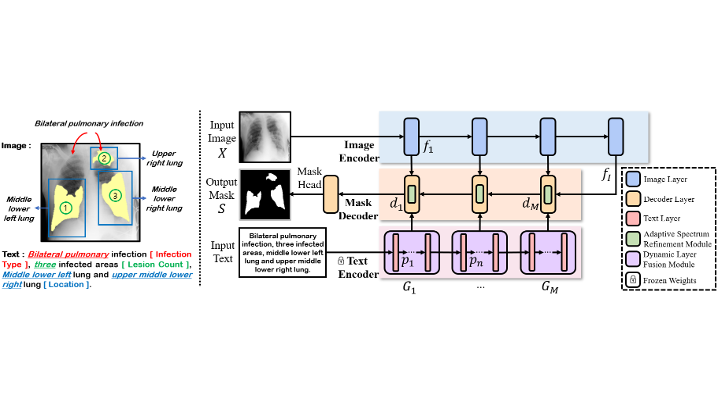
HiMix : Hierarchical Visual-Textual Mixing Network for Lesion Segmentation
Soojin Hwang*, Jaeyoon Sim*, Won Hwa Kim (*: Equal Contribution)
C IEEE/CVF Winter Conference on Applications of Computer Vision (WACV), Tucson, Arizona, 2026
W MICCAI Workshop on Emerging LLM/LMM Applications in Medical Imaging (ELAMI), Daejeon, Republic of Korea, 2025
KSIIM Academic Award - Excellence Prize
title={HiMix : Hierarchical Visual-Textual Mixing Network for Lesion Segmentation},
author={Hwang, Soojin, and Sim, Jaeyoon and Kim, Won Hwa},
booktitle={IEEE/CVF Winter Conference on Applications of Computer Vision},
year={2026},
}
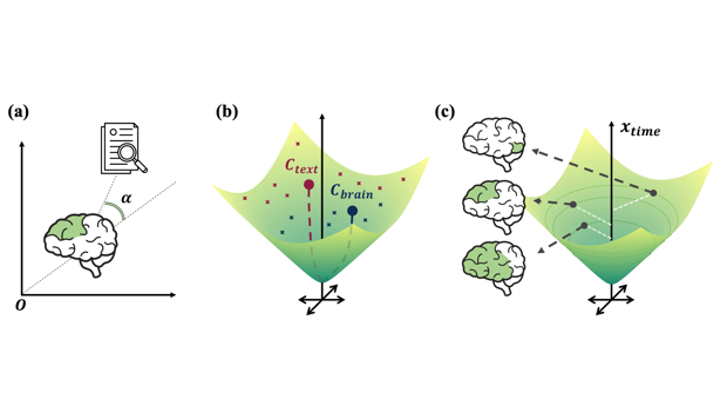
MNM: Multi-level Neuroimaging Meta-analysis with Hyperbolic Brain-Text Representations
Seunghun Baek, Jaejin Lee, Jaeyoon Sim, Minjae Jung, Won Hwa Kim
C International Conference on Medical Image Computing and Computer Assisted Intervention (MICCAI), Daejeon, Republic of Korea, 2025
Provisional Accept [~9% Acceptance Rate]
title={MNM: Multi-level Neuroimaging Meta-analysis with Hyperbolic Brain-Text Representations},
author={Baek, Seunghun and Lee, Jaejin and Sim, Jaeyoon and Jeong, Minjae and Kim, Won Hwa},
booktitle={International Conference on Medical Image Computing and Computer-Assisted Intervention},
pages={397--406},
year={2025},
organization={Springer}
}
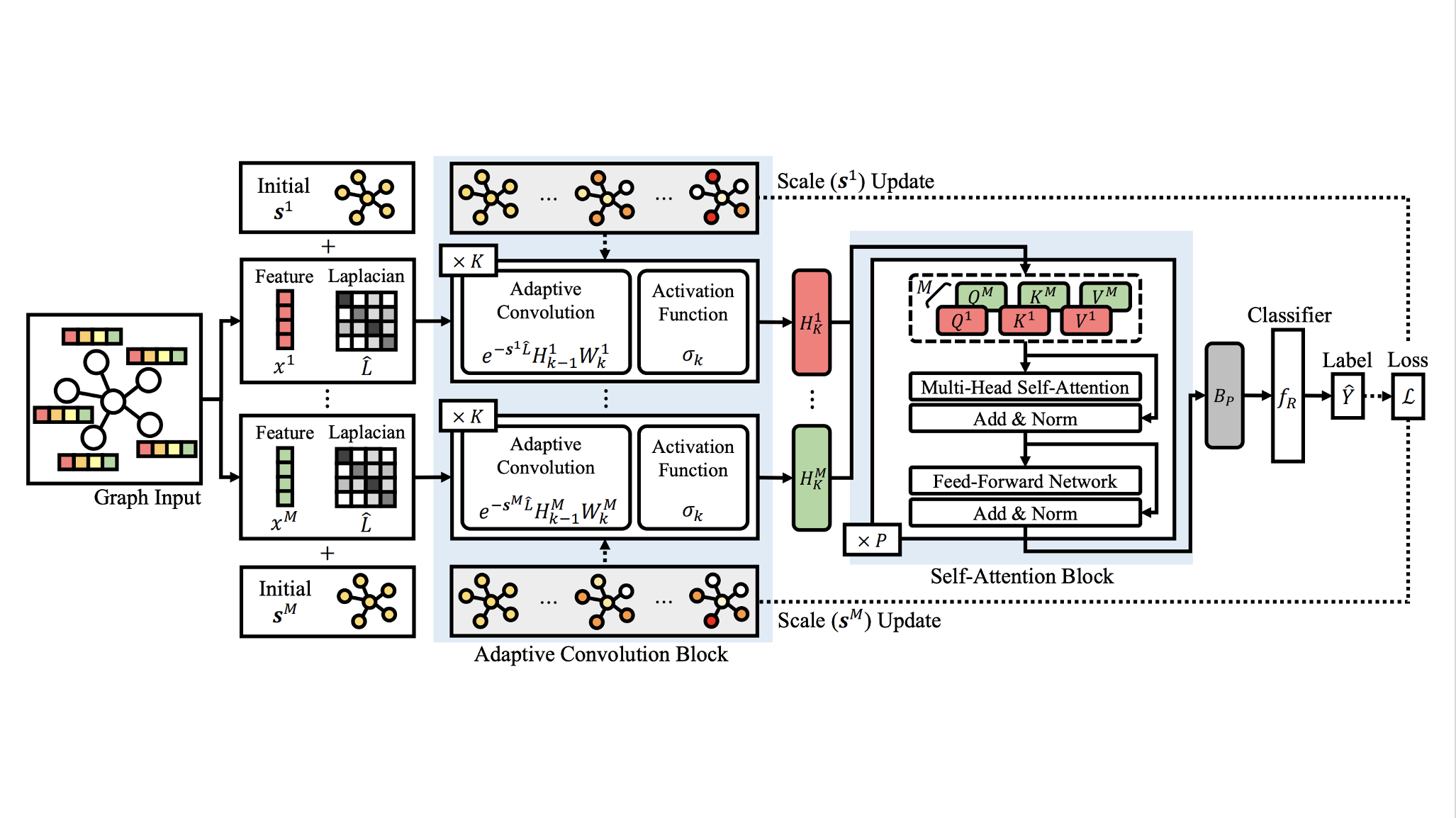
Multi-Modal Graph Neural Network with Transformer-Guided Adaptive Diffusion for Preclinical Alzheimer Classification
Jaeyoon Sim, Minjae Lee, Guorong Wu, Won Hwa Kim
C International Conference on Medical Image Computing and Computer Assisted Intervention (MICCAI), Marrakesh, Morocco, 2024
title={Multi-modal Graph Neural Network with Transformer-Guided Adaptive Diffusion for Preclinical Alzheimer Classification},
author={Sim, Jaeyoon and Lee, Minjae and Wu, Guorong and Kim, Won Hwa},
booktitle={International Conference on Medical Image Computing and Computer-Assisted Intervention},
pages={511--521},
year={2024},
organization={Springer}
}

OCL: Ordinal Contrastive Learning for Imputating Features with Progressive Labels
Seunghun Baek*, Jaeyoon Sim*, Guorong Wu, Won Hwa Kim (*: Equal Contribution)
C International Conference on Medical Image Computing and Computer Assisted Intervention (MICCAI), Marrakesh, Morocco, 2024
Provisional Accept [~11% Acceptance Rate]
title={OCL: Ordinal Contrastive Learning for Imputating Features with Progressive Labels},
author={Baek, Seunghun and Sim, Jaeyoon and Wu, Guorong and Kim, Won Hwa},
booktitle={International Conference on Medical Image Computing and Computer-Assisted Intervention},
pages={334--344},
year={2024},
organization={Springer}
}
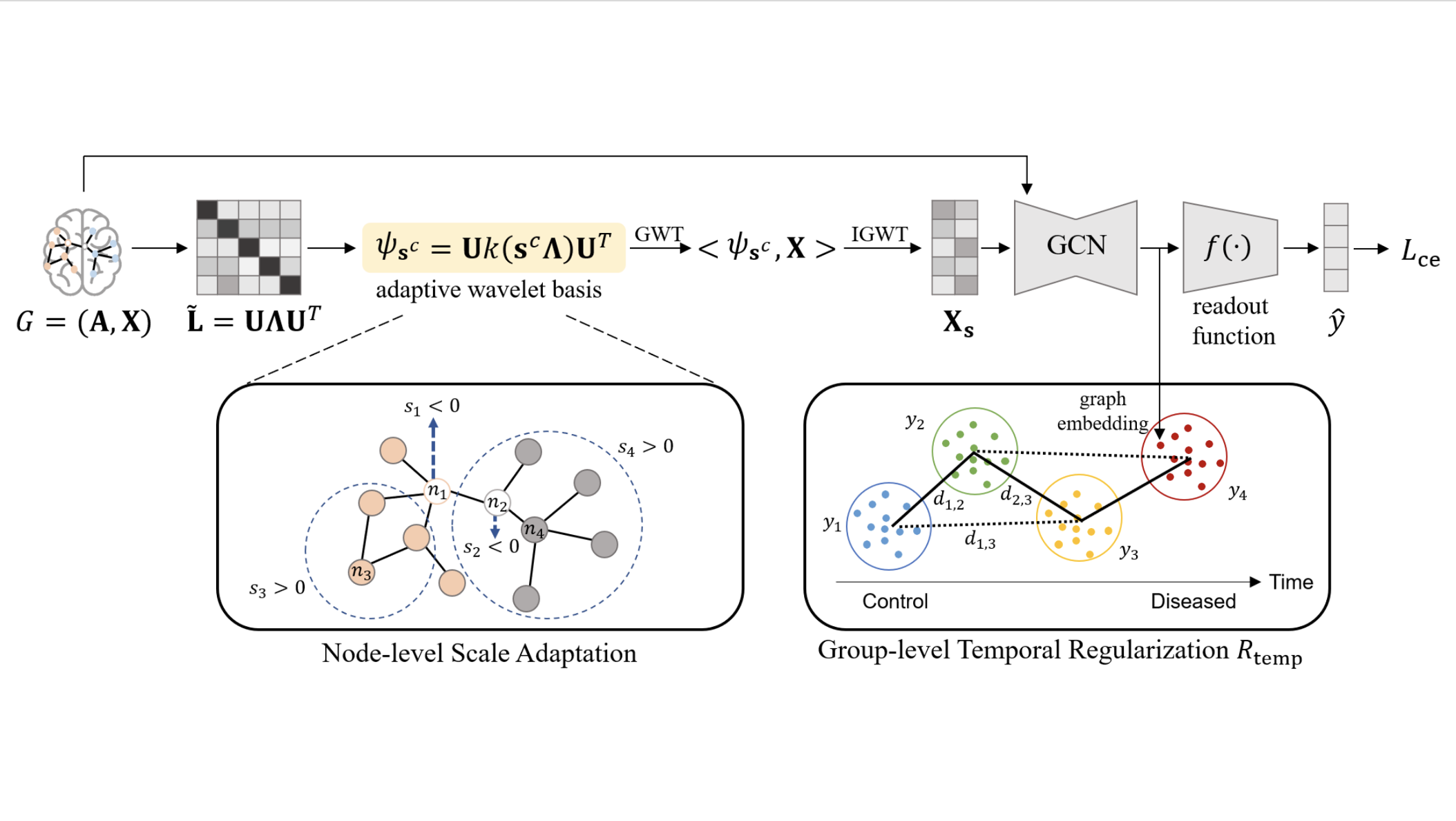
Neurodegenerative Brain Network Classification via Adaptive Diffusion with Temporal Regularization
Hyuna Cho, Jaeyoon Sim, Guorong Wu, Won Hwa Kim
C International Conference on Machine Learning (ICML), Vienna, Austria, 2024
BK21 Outstanding Paper Award - Top Excellence Prize
title={Neurodegenerative Brain Network Classification via Adaptive Diffusion with Temporal Regularization},
author={Cho, Hyuna and Sim, Jaeyoon and Wu, Guorong and Kim, Won Hwa},
booktitle={Forty-first International Conference on Machine Learning}
}
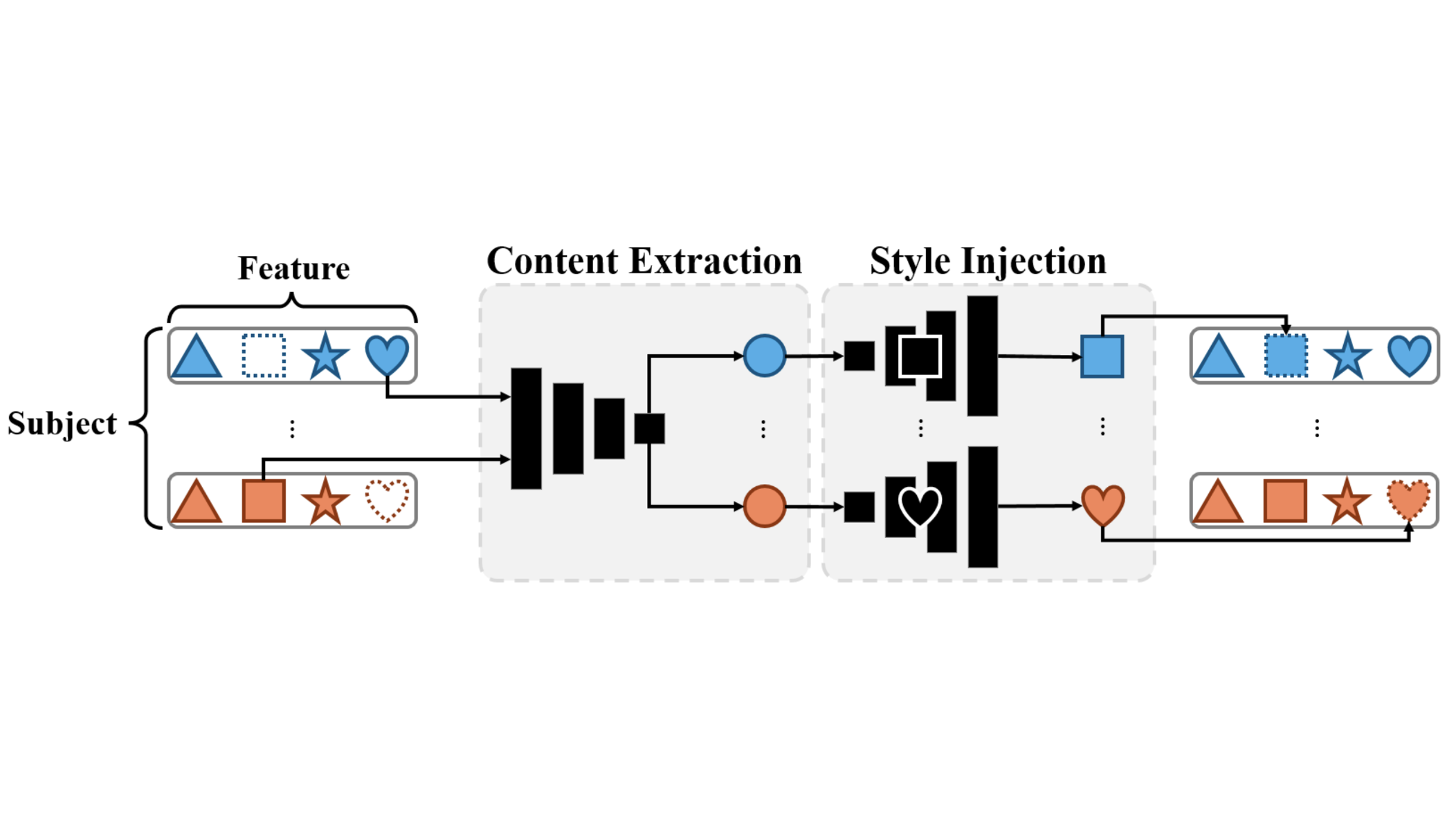
Modality-Agnostic Style Transfer for Holistic Feature Imputation
Seunghun Baek*, Jaeyoon Sim*, Mustafa Dere, Minjeong Kim, Guorong Wu, Won Hwa Kim (*: Equal Contribution)
C International Symposium on Biomedical Imaging (ISBI), Athens, Greece, 2024
Oral Presentation
author={Baek, Seunghun and Sim, Jaeyoon and Dere, Mustafa and Kim, Minjeong and Wu, Guorong and Kim, Won Hwa},
booktitle={2024 IEEE International Symposium on Biomedical Imaging (ISBI)},
title={Modality-Agnostic Style Transfer for Holistic Feature Imputation},
year={2024},
volume={},
number={},
pages={1-5},
keywords={Neuroimaging;Training;Magnetic resonance imaging;Imaging;
Estimation;Biomedical measurement;Generative adversarial networks},
doi={10.1109/ISBI56570.2024.10635492}}
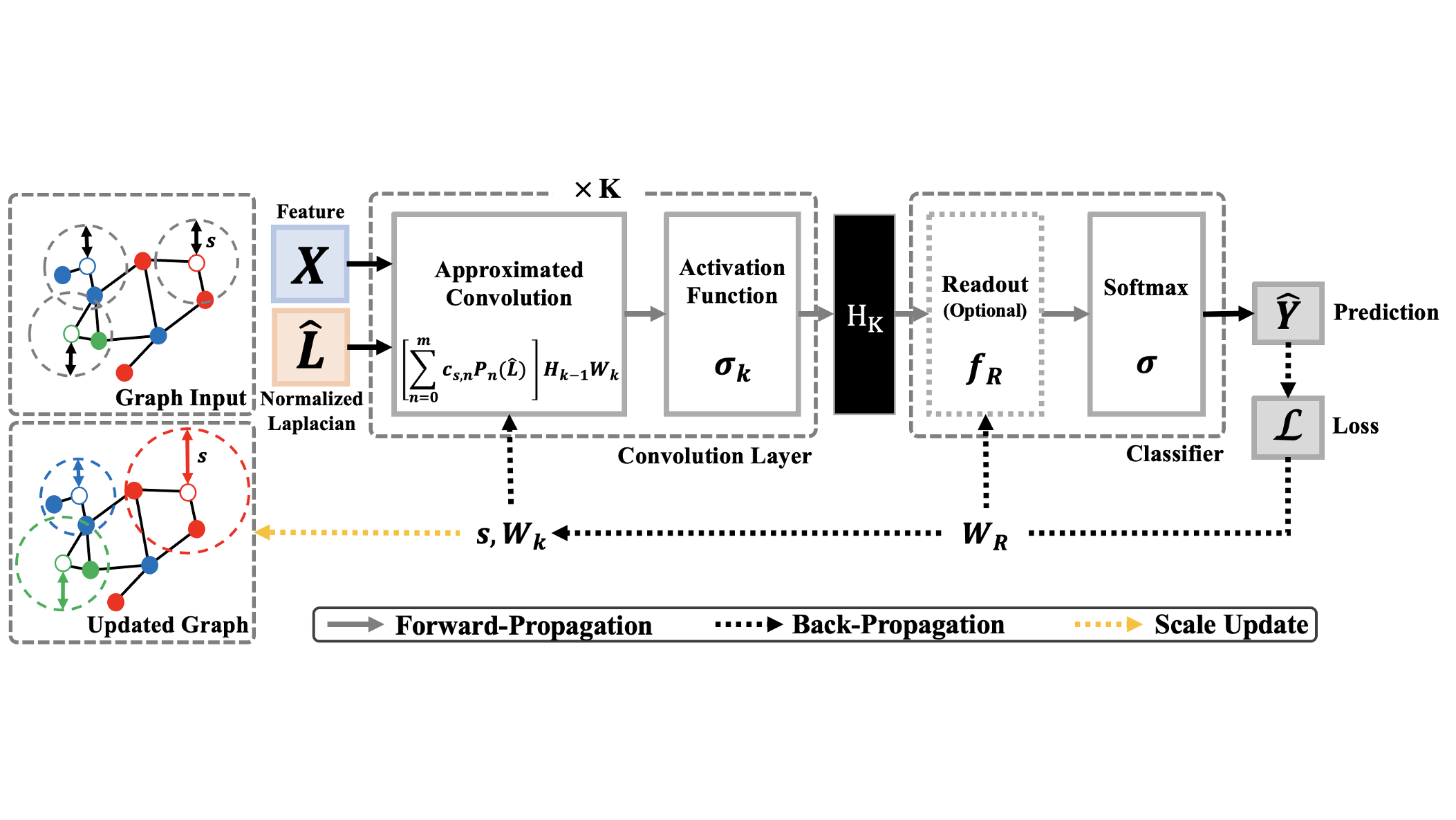
Learning to Approximate Adaptive Kernel Convolution on Graphs
Jaeyoon Sim, Sooyeon Jeon, InJun Choi, Guorong Wu, Won Hwa Kim
C Association for the Advancement of Artificial Intelligence (AAAI), Vancouver, Canada, 2024 [23.75% Acceptance Rate]
W Image Processing and Image Understanding (IPIU), Jeju, Republic of Korea, 2024
IPIU Outstanding Paper Award - Bronze Prize
BK21 Outstanding Paper Award - Excellence Prize
title={Learning to Approximate Adaptive Kernel Convolution on Graphs},
author={Sim, Jaeyoon and Jeon, Sooyeon and Choi, InJun and Wu, Guorong and Kim, Won Hwa},
booktitle={Proceedings of the AAAI Conference on Artificial Intelligence},
volume={38},
number={5},
pages={4882--4890},
year={2024}
}
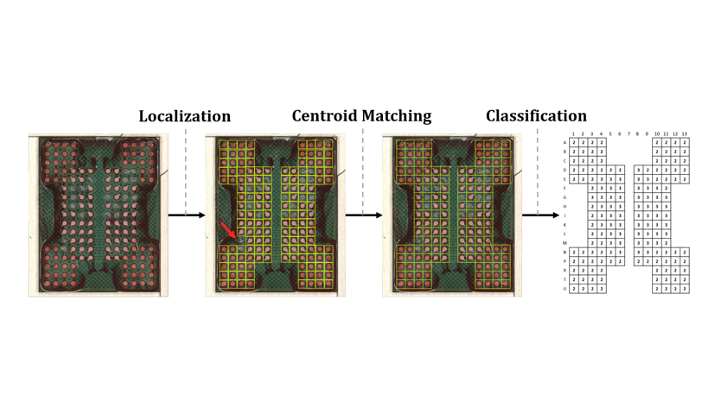
AI-Driven BGA Solder Joint Failure Detection of PCB Assembly
Seunghun Baek, Jaeyoon Sim, Siyeon Park, Cheolung Yang, Songyi Jeon, Jongho Song, Won Hwa Kim
C Autumn Annual Conference of the Institute of Electronics and Information Engineers (IEIE), Siheung, Republic of Korea, 2023
C : Conference J : Journal W : Workshop